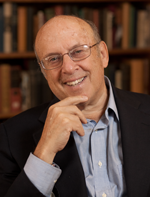
Jeffrey Carduner, Aesthetic Realism consultant, writes:
This issue of TRO will cause big emotion and new perception in a reader. It is about what beauty is. And it’s about the central fight in every human being—something people all over the world need tremendously to understand. You’ll learn (among other things) what the most important question in history is. And you’ll learn about this urgent matter: what does it mean to see other people justly? All this is in “Sentences, Beauty, & the Biggest Fight,” the remarkable new issue of The Right of Aesthetic Realism to Be Known.
The commentary by Ellen Reiss begins:
Dear Unknown Friends:
Here is the conclusion of Eli Siegel’s superb lecture Beginning with Sentences, given in 1976. Using the book Prose and the Essay (ed. C.T. Wells), he has been commenting on individual sentences in English literature that stand out, that are beautiful. His purpose is to have us see that sentences which are art arise from and can make for the kind of emotions people are longing to have. Early in the talk he explained (in a sentence that is itself beautiful): “Success in life can be described as having the greatest emotions from life.”
The last writer Mr. Siegel discusses in this lecture is the critic Walter Pater (1839-94). Mr. Siegel disagrees firmly with the statements of Pater that he quotes. Indeed, Aesthetic Realism at its very basis is a contradiction of what Pater says—that beauty cannot be defined. Yet Mr. Siegel cared for Pater. And in this discussion of him we can see something that Aesthetic Realism has richly: a combination of complete logic and a good time. Meanwhile: beauty can be defined, and Eli Siegel is the philosopher who successfully defined it—in this landmark principle: “All beauty is a making one of opposites, and the making one of opposites is what we are going after in ourselves….” Read more